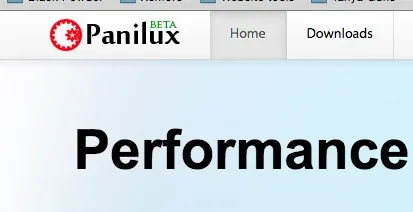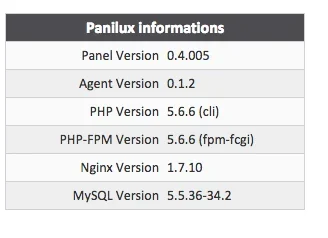Panilux, is a new generation Linux control panel designed having in mind end users. Panilux allows you to control your servers in a fast and secure maner. Performance, using the latest web, email and ftp services Panilux gives you a full control of your domains. User Interface, simple and yet powerfull. Even the new users can easily grasp the concept. Security, you can securily access your private control panel using a valid SSL.
More info: https://www.panilux.com/Performance
Supporting Nginx and PHP-FPM, Panilux is designed to deal with the C10k problem!


